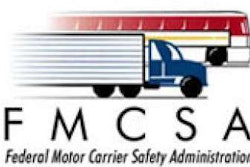
The U.S. Senate’s failure to overcome the objections of a single Republican senator meant funding for federal highway, transit and highway safety programs was set to run out at midnight Sunday, Feb. 28, Congressman Jim Oberstar said Friday, Feb. 26.
Oberstar – who is chairman of the House Committee on Transportation and Infrastructure – said the expiration also may force employee layoffs at the U.S. Department of Transportation, including the Federal Motor Carrier Safety Administration, Federal Highway Administration, National Highway Traffic Safety Administration and the Research and Innovative Technology Administration.
The current surface transportation authorization act – the Safe, Accountable, Flexible, Efficient, Transportation Equity Act: A Legacy for Users (SAFETEA-LU) – was due to expire Sept. 30, 2009, but has been kept alive by a series of extensions while Congress considers a replacement authorization bill. The latest extension expired Sunday, Feb. 28.
“I find it outrageous that one senator can kill a piece of legislation and cause chaos for our cities and states,” said Oberstar, referring to Sen. James Bunning (R-Ky.). The Senate adjourned Friday, Feb. 26, without approving cash and health insurance benefit extensions for the unemployed after Bunning insisted that Congress first pay for the $10 billion package. The highway funding is part of the jobs bill.
“There are going to be other bills brought to this floor that are not going to be paid for, and I’m going to object every time they do it,” Bunning said on the Senate floor. “… At the present level of debt and if the present administration’s budget is passed, the debt of the United States will be unsustainable. ‘Unsustainable’ to me means that there is a chance of one of the rating agencies downgrading the rating on our debt. We cannot allow that to happen.”
A different bill pending in the House would extend SAFETEA-LU through the end of 2010; that bill may come up for a vote as early as Tuesday, March 2, and it is possible that the employees would not be furloughed if there is assurance that enactment of a funding bill is imminent.
In the meantime, states may have to suspend work on some road and bridge projects while they wait for their reimbursement payments from the federal government.
DOT said that it will furlough nearly 2,000 employees without pay starting today, March 1, temporarily shutting down highway reimbursements to states worth hundreds of millions of dollars, national anti-drunk driving efforts and multimillion dollar construction projects across the country.
“As American families are struggling in tough economic times, I am keenly disappointed that political games are putting a stop to important construction projects around the country,” said U.S. Transportation Secretary Ray LaHood. “This means that construction workers will be sent home from jobsites because federal inspectors must be furloughed.”
NHTSA said the furloughs will disrupt safety programs that operate in partnership with the states and advocacy groups, such as Mothers Against Drunk Driving (MADD) and the International Association of Chiefs of Police (IACP).
Assistance to consumers whose goods are held hostage by rogue moving companies will be unavailable during this period. And work addressing texting while driving for commercial truck and bus drivers, electronic onboard recorders and hours of service also will be suspended.
The American Association of State Highway and Transportation Officials said the federal reimbursements of funds already expended by the states amount to roughly $800 million a week; FTA, NHTSA and FMCSA also would suspend payments, according to AASHTO.
“We are deeply concerned about the severe impacts to state and local transportation programs of this disruption of the federal highway and transit programs,” said John Horsley, AASHTO executive director. “We commend Chairman Oberstar, (House) Speaker (Nancy) Pelosi, and (Senate) Majority Leader (Harry) Reid for reaching an agreement that will enable the House to pass the Senate version of an extension of the highway and transit programs, with the understanding that a later legislative fix will revise how highway discretionary funds are to be distributed. We hope Congress can move this legislation as early in the week as possible so reimbursements to the states can resume.”
Following an emergency meeting today, March 1, to discuss the impact of the current shutdown of federal highway and transit programs, state transportation officials called the action “a bad situation and it’s only going to get worse.” At a news conference held in conjunction with AASHTO’s annual Washington briefing, leaders from across the country spoke out on the issue.
“If you do the math, we’re talking about more than $153 million a day in lost reimbursement payments for highway projects to the states,” said Larry L. “Butch” Brown, executive director of the Mississippi Department of Transportation and AASHTO president. “Congress has to move quickly to correct this by passing legislation and getting it signed into law. This is a bad situation, and it’s only going to get worse.”
Congress currently is considering several options that would restore funding to the Motor Carrier Safety Assistance Program, which provides state grants for roadside inspection of commercial trucks and buses. The American Trucking Associations urged Congress to expedite passage of legislation that would restore the funding.
“The immediate cessation of funding for the Motor Carrier Safety Assistance Program (MCSAP) is of greatest concern,” said Bill Graves, ATA president and chief executive officer. “Without this money, states may not be able to provide sufficient enforcement efforts necessary to ensure commercial vehicles are in a safe operating condition, and that truck and bus drivers are properly licensed and in compliance with federal safety regulations such as the federal hours-of-service regulations.”












